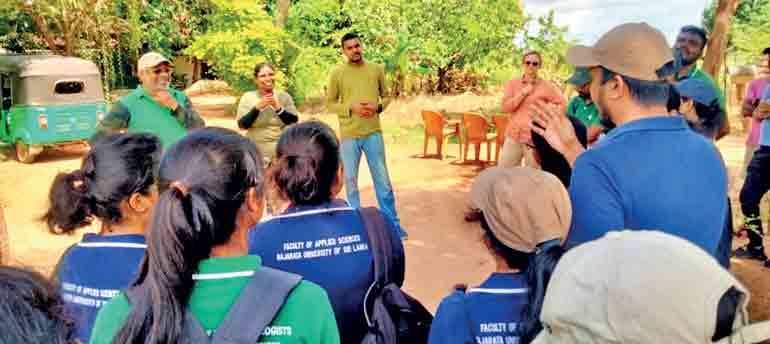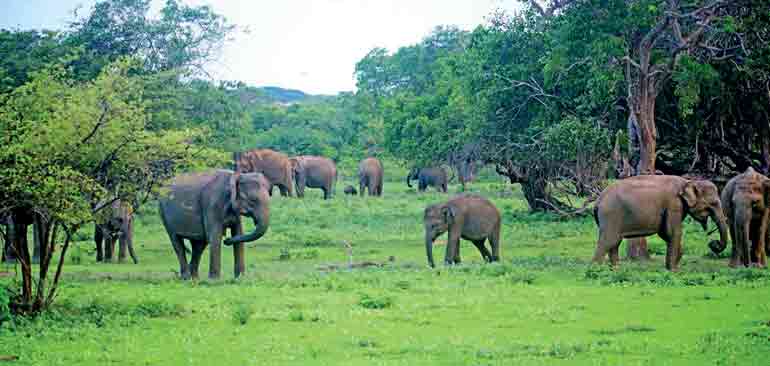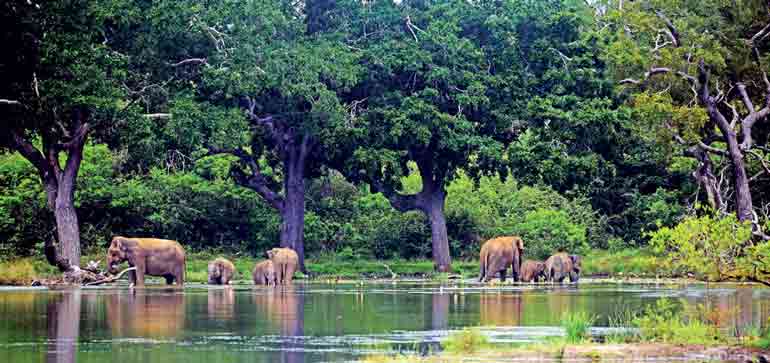Saturday Feb 21, 2026
Saturday Feb 21, 2026
Tuesday, 12 August 2025 03:31 - - {{hitsCtrl.values.hits}}

As Sri Lanka marks World Elephant Day, the Wildlife & Nature Protection Society (WNPS) underscores both the urgency of the human-elephant conflict (HEC) crisis and the practical solutions underway to address it.
Between 2000 and 2024, Sri Lanka lost approximately 6,470 elephants, according to data from the Department of Wildlife Conservation (DWC). Despite ongoing efforts, these devastating losses show no signs of slowing, highlighting the critical need for stronger conservation measures and innovative strategies to address HEC and safeguard both elephant and human lives. Alarmingly, the first six months of 2025 have already seen over 250 elephant deaths, a stark reminder that peaceful coexistence remains one of the country’s most urgent and complex conservation challenges.
Action, not rhetoric
The WNPS Human-Elephant Coexistence Subcommittee has consistently pressed for the full implementation of the National Action Plan for the Mitigation of Human-Elephant Conflict (NAP), calling for a Presidential Task Force with the authority and funding to drive policy into practice. Despite delays, the Society’s leadership continues high-level engagement with government officials, pushing for urgent adoption of long-term mitigation strategies.
Community-centred, science-driven solutions
Notable successes in sustainable HEC management:

Building tolerance and resilience
Recognising that HEC is as much a socio-economic crisis as it is a wildlife one, WNPS partnered with Spa Ceylon and launched the Gaja Nena Sahana Scholarship Program on World Elephant Day 2024. This initiative supports children who have lost a parent to HEC, providing monthly scholarships until they complete secondary education – a first in Sri Lanka’s conservation landscape.
In addition, WNPS continues to:
Knowledge-sharing platforms
The Society’s annual gathering brought together local and international experts, including renowned Asian elephant specialist Prof. Ahimsa Campos-Arceiz, to exchange best practices in coexistence strategies. These sessions foster collaboration between government, academia, and communities – a vital foundation for lasting change.
Looking ahead
Despite progress, WNPS warns of mounting pressure to reverse evidence-based policies, such as the reintroduction of elephant drives. The Society will continue to resist counterproductive measures and strengthen:
WNPS Past President and Chair of the Human-Elephant Coexistence Subcommittee Jehan Canagaretna notes: “We cannot afford short-term fixes or political dependency. Sri Lanka’s elephants are a global treasure, but their survival depends on strategies that protect both wildlife and farmer livelihoods. Our work shows that coexistence is possible – but it demands persistence, policy, and partnership.”
As Sri Lanka reflects on another World Elephant Day, WNPS calls on all stakeholders – from policymakers to rural communities – to unite behind proven, practical measures. In the fight to prevent further loss of life, the time for decisive, collective action is now.

